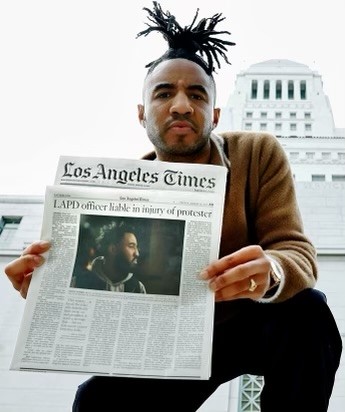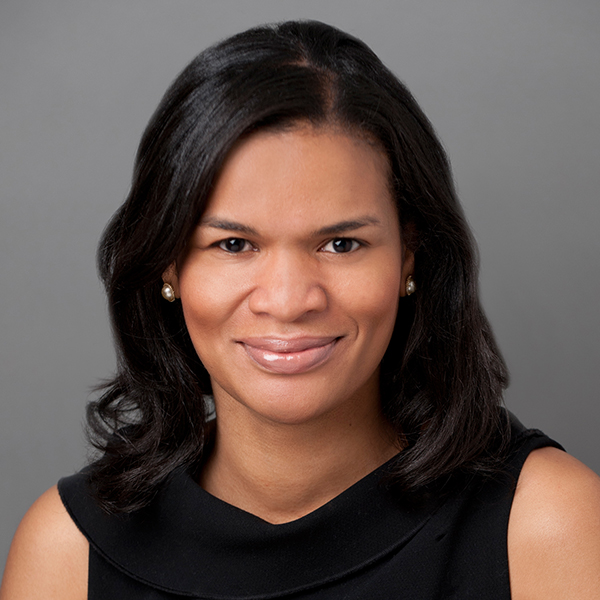
|
| February 29, 2024 |
Black History Month
At Gibson Dunn, we believe we have a privilege and responsibility as lawyers to assist clients and causes close to our hearts, and to make a difference in our communities through our pro bono representation. As Black History Month draws to a close, we wanted to take time to reflect on the some of the pro bono projects that Gibson Dunn attorneys have worked on in recent years to support and uplift members of the Black community.
We have a longstanding commitment to addressing racial justice and equity issues, which have always been an important area of focus for the firm’s pro bono practice. Each year, attorneys across the firm dedicate tens of thousands of hours to racial equity-focused matters. This has included efforts focused on advice to Black-owned small businesses, representing nonprofits and organizations serving the Black community across the United States, criminal justice reform, litigation defending the rights of individuals targeted by law enforcement while peacefully protesting the murder of George Floyd, and police reform and accountability efforts, among other matters.
The following projects are just a sampling of our pro bono work in the racial justice space. In recent months, we have witnessed a growing need for advice regarding Diversity, Equity, and Inclusion efforts, alongside a continuing need for criminal justice reform and police accountability. As we continue fighting to address these important issues, we look forward to maintaining and building on our partnerships with pro bono clients, nonprofit organizations, and corporate clients who share our commitment to racial equity.
Advising and Representing Black-Owned Businesses & Nonprofits
As part of our pro bono practice, Gibson Dunn regularly advises small businesses and nonprofits, with a particular focus on minority- and female-founded organizations and companies. With a broad array of areas of expertise, our lawyers are able to assist with a wide variety of transactional projects for clients, leading to long-lasting and fulfilling working relationships that span years and see clients through periods of change and growth. Additionally, in the wake of the Supreme Court’s decision in SFFA v. Harvard, the Firm has developed a Workplace DEI Task Force that helps our clients develop creative, practical, and lawful approaches to accomplish their DEI objectives. We have also represented several such businesses who have found themselves the target of litigation.
Outdoor Afro
Outdoor Afro is a national nonprofit organization whose mission is to celebrate and inspire Black connections and leadership in nature. The network also connects Black people with lands, water, and wildlife through outdoor education, recreation and conservation. Some examples of Outdoor Afro’s year-round activities range from fishing, hiking, biking, kayaking, gardening, skiing and more.
The Firm has been representing Outdoor Afro since 2015, and has had the privileged to watch the organization grow both in terms of number of participants nationwide and in terms of funding. Among other things, Gibson Dunn’s San Francisco-based real estate attorneys helped Outdoor Afro explore options for purchasing land in Sonoma County, which would serve as a permanent home base for the organization with a retreat center, overnight camp and event space. We assisted Outdoor Afro on diligence and negotiations in connection with the proposed purchase.
Recently, Bay Area-based corporate associates helped negotiate corporate grant agreements on behalf of Outdoor Afro, which provided funding for their Making Waves program. Outdoor Afro launched Making Waves in 2019 in response to the alarming number of Black children who drown each year. Outdoor Afro partners with U.S. swim providers to fund lessons in water safety and basic swimming techniques. In 2023, more than 1,000 Black children and caregivers throughout the United States received swim lessons through the Making Waves program.
Fearless Fund Litigation
The Fearless Foundation is a nonprofit that aims to increase access to capital for small businesses owned by women of color. Among other charitable endeavors, the Foundation awards a grant of $20,000 and one-on-one mentorship to small businesses owned by one or more Black women, who represent the fastest-growing entrepreneurial demographic in the United States but received just 0.13% of all venture-capital funding last year.
In August 2023, the American Alliance for Equal Rights filed a suit against the Foundation and sought a preliminary injunction to force the Foundation to make its charitable grants available to female entrepreneurs, regardless of race. The Alliance’s suit included a single claim brought under one of the nation’s oldest civil rights laws: 42 U.S.C. § 1981. Section 1981 was passed after the Civil War by the Reconstruction Congress to secure economic rights to formerly enslaved people, including the “same right” to make and enforce contracts “as is enjoyed by white citizens.” The Alliance made the unprecedented argument that this civil rights law, which was created to prohibit discrimination against the formerly enslaved, prevents the Foundation from providing grants designed to remedy the disparity in funding black women owned businesses, turning the Civil Rights law on its head.
The Foundation retained Gibson Dunn to serve as its lead counsel in the Alliance’s suit. Gibson Dunn filed a brief, three fact declarations, one expert declaration, and hundreds of pages of exhibits in opposition to the Alliance’s motion for a preliminary injunction. In its papers, Gibson Dunn argued that the motion failed for multiple reasons, including that a preliminary injunction would violate the Foundation’s First Amendment right to direct its charitable grants and mentorship to further its message of anti-discrimination and economic freedom. On September 26, after hearing oral argument from Gibson Dunn attorneys Jason Schwartz and Mylan Denerstein, Judge Thomas W. Thrash of the U.S. District Court for the Northern District of Georgia denied the Alliance’s preliminary injunction, adopting Gibson Dunn’s arguments that the First Amendment bars the Alliance’s Section 1981 claim and that the Alliance failed to show irreparable injury.
The Alliance has appealed the denial of its motion for a preliminary injunction to the United States Court of Appeals for the Eleventh Circuit. Gibson Dunn represented the Foundation on appeal, including in oral argument held on January 31, 2024. The appeal is now pending before the Court.
The case is American Alliance for Equal Rights v. Fearless Fund, No. 23-cv-3424 (N.D. Ga.)
|
"In this moment, as there are many fights happening around organizations’ DEI efforts, Gibson Dunn proudly continues to move the needle forward through the work of our DEI Task Force. I am proud that the firm’s diversity and pro bono departments are at the center of our efforts. Gibson Dunn is a market leader on these issues and is committed to supporting our many diverse clients in this space. As we celebrate Black History Month, I am equally proud that many of our efforts have benefited the Black community." |
Zakiyyah Salim-Williams
|
Addressing Systemic Racism in the Criminal Justice System
The evidence that racial bias suffuses our criminal justice system is indisputable. Gibson Dunn has made challenging that racial bias and fighting for the fair and equitable enforcement of the law a pillar of its pro bono practice.
The Innocence Project
The Innocence Project was founded in 1992 to exonerate the innocent, prevent wrongful convictions, and create a more equitable justice system. Over the last three decades, the Innocence Project has helped free approximately 250 innocent people from prison, including more than 20 people who had been sentenced to death for crimes they did not commit.
Each year, the Innocence Project receives thousands of requests for assistance from incarcerated individuals—far too many for it to meaningfully review and consider. In recent years, as part of the Firm’s support of the Innocence Project, Gibson Dunn has stepped in to help screen dozens of cases to evaluate whether they have colorable claims of actual innocence worth pursuing. Our teams review the case file and provide an in-depth summary of the facts of the case, the biological evidence available, and the theory under which DNA testing can or cannot prove innocence. The ultimate goal is to determine whether DNA testing has the ability to prove innocence and ultimately exonerate the defendant.
The Innocence Project’s cases reflect the effects of systemic racism in the criminal justice system and the disproportionate impact of wrongful convictions on Black Americans: more than half of the Innocence Project’s cases involve Black defendants. Many cases that ultimately end in exoneration involve faulty evidence that contributed to the original guilty verdict, including many cases with witness misidentification, false confessions, and misapplied forensic science. Eyewitness misidentification is particularly problematic: more than two thirds of national DNA exonerations have involved witness misidentification. Notably, witnesses tend to be less accurate when making cross-racial identifications, further exacerbating the effects of systemic racism in the criminal justice system. Our teams help identify cases that display these issues, with a focus on cases where DNA evidence could exonerate the individual claiming innocence. This helps the Innocence Project focus their resources to those cases that are most likely to result in an exoneration and free an innocent person from prison.
In recent years, we have been particularly proud to partner with dozens of attorneys and other legal professionals from in-house legal teams. Working together, our teams have jointly reviewed case files and drafted memos evaluating whether the Innocence Project should pursue the cases. In total, Gibson Dunn has taken on approximately 75 case screenings on the Innocence Project’s behalf. We look forward to continuing to partner with the Innocence Project and our corporate clients on this important work.

Promise of Justice Jim Crow Juries Project
In November 2023, Gibson Dunn, together with the Promise of Justice Initiative (“PJI”), secured the release of pro bono client “Ben.” In 1983, at age 19, Ben was convicted by a non-unanimous, unconstitutional jury in Louisiana. Over the dissenting votes of two jurors—who, like Ben, were Black—Ben was found guilty of an alleged armed robbery. He was sentenced to ninety-nine years at hard labor without benefit of probation, parole, or suspension. Effectively, Ben received a life sentence despite important mitigating facts: the alleged robbery was of $400, he had never before been accused of a violent crime, he had lived a difficult childhood, no one was physically injured during the alleged robbery, and two jurors had reasonable doubt he was guilty at all. After spending the past forty years incarcerated in Louisiana state prisons, Ben received an amended sentence reduced to time served. He was released as a free man in November 2023.
Gibson Dunn has been working with PJI to help individuals like Ben seek justice after being convicted by Jim Crow juries. The U.S. Supreme Court held non-unanimous juries to be unconstitutional in Ramos v. Louisiana in 2020, but their subsequent decision in Edwards v. Vannoy held that Ramos would not apply retroactively, leaving those already convicted and incarcerated prior to 2020 without hope for relief.
Despite these challenges, the Firm and PJI successfully filed an uncontested post-conviction relief application that allowed Ben a new sentencing hearing under state law. The hearing was granted and the Judge resentenced Ben to forty years, with full credit for time served. Ben was released into a three-year reentry program that will provide comprehensive resources and support as Ben adjusts to life outside of incarceration. Ben—who is known by those around him for his selflessness, wisdom, and unwavering optimism—is excelling in the program.
|
"The racial justice pro bono matters that I have had the opportunity to work on over the years have been some of the most personally and professionally rewarding experiences of my career. What I have enjoyed most about these matters is uniting with my colleagues of all backgrounds to address these systemic inequities and injustices.” |
Tiaunia N. Henry
|
Police Practices and Accountability
A hallmark of the firm’s pro bono work in recent years has been its commitment to police practices and accountability. To that end, the firm has provided advice and counsel in this space to various organizations and municipalities seeking to create more equitable law enforcement entities.
For example, the firm has worked with Leadership Conference, a coalition of more than 200 civil rights organizations focused on democracy, justice, and civil rights issues, in connection with police reform efforts in Dallas, Texas. The Leadership Conference worked with a statistician to analyze arrest data for low-level, non-violent crimes to identify which state laws and local ordinances predominantly result in citizens of low-income communities having negative contacts with law enforcement. The Leadership Conference presented this empirical analysis and Gibson Dunn’s legal analysis regarding options for elected officials and the Dallas Police Department to repeal and de-prioritize the enforcement of certain offenses to the Dallas City Council.
Similarly, Gibson Dunn has worked with the National Organization of Black Law Enforcement Executives (“NOBLE”) to reimagine public safety and identify appropriate substantive policy changes. Specifically, Gibson Dunn worked with a NOBLE task force focused on developing a community organization-focused framework on strategic reduction of law enforcement’s footprint without compromising public safety. This resulted in a task force report and presentation which has been widely shared in law enforcement communities.
Gibson Dunn attorneys also worked with the City Council of Geneva, New York, to evaluate and present an analysis of whether proposed legislation to establish a Police Accountability Board was consistent with New York state law, the Geneva City Charter, and the collective bargaining agreement with the local police union. In particular, Gibson Dunn focused on the PAB’s disciplinary and investigative authority, its appointment and removal provisions, and its composition, to identify potential amendments to further protect the proposed law from legal challenge.
Further, Gibson Dunn has represented the Lawyers’ Committee for Civil Rights Under Law in support of pushing Congress to pass robust and comprehensive legislation on police reform. Gibson Dunn assisted in advocating for Congress to pass the George Floyd Justice in Policing Act of 2020, and advocated before Senate offices in support of the Justice in Policing Act. Our attorneys also assisted the Lawyers’ Committee in researching and analyzing new and novel proposals for federal legislation on policing, including providing strategic legal and political counsel concerning police reform proposals.
In addition to this advisory work, the Firm has also represented a number of individuals from across the country who have found themselves the victims of police misconduct. Two of those cases are spotlighted below, along with Gibson Dunn’s ongoing work to enforce the judgments in landmark challenges to unconstitutional stop and frisk tactics.
Jones v. City of Los Angeles
Mr. Jones, a Los Angeles-based performance artist, entrepreneur, and Truman Scholar, grew up in Wiggins, Mississippi, where he witnessed and was subjected to rampant anti-Black racism. He has chosen to dedicate his adult life to serving as a leader and voice for his communities, using his work to help spread messages of inclusivity, social justice, and equality. He counts among his mentors the late Congressman John Lewis, who instilled in him the deep-seated belief that he had a responsibility to stand up and fight against inequality. On the afternoon of May 30, 2020, LAPD officers outfitted in riot gear arrived as the protesters began to march away from the park, causing the scene to become increasingly chaotic. Mr. Jones and his friend sought refuge in the parking lot of a nearby Trader Joe’s. While peacefully filming the scene with his phone in the parking lot, Mr. Jones was suddenly shot in the face by Officer Peter Bueno with a projectile from a weapon known as a 40mm “less-lethal” launcher. The projectile broke two bones in Mr. Jones’ face and was millimeters away from blinding him, or even worse, killing him.
On the afternoon of May 30, 2020, LAPD officers outfitted in riot gear arrived as the protesters began to march away from the park, causing the scene to become increasingly chaotic. Mr. Jones and his friend sought refuge in the parking lot of a nearby Trader Joe’s. While peacefully filming the scene with his phone in the parking lot, Mr. Jones was suddenly shot in the face by Officer Peter Bueno with a projectile from a weapon known as a 40mm “less-lethal” launcher. The projectile broke two bones in Mr. Jones’ face and was millimeters away from blinding him, or even worse, killing him.
|
Mr. Jones brought this civil rights lawsuit to hold the City of Los Angeles, the Los Angeles Police Department, the Chief of the LAPD, and LAPD Officer Bueno accountable for their egregious and unconstitutional conduct on May 30, 2020. When Mr. Jones filed his initial Complaint in the Central District of California on December 9, 2020, he did not know the identity of his shooter. It was only after the City and the LAPD were ordered by the Court to produce critically important documents to Mr. Jones, including documents related to the LAPD’s internal investigation into the shooting, that Mr. Jones was finally able to identify Officer Bueno as his shooter— almost a year after filing his initial Complaint. Mr. Jones’ case then survived multiple motions to dismiss and a motion for summary judgment before proceeding to trial. Mr. Jones also rejected a settlement offer from the City, an offer that would turn out to be less than what Mr. Jones was awarded at trial. |

|
On February 28, 2023, trial commenced before an eight-person jury, with the Honorable Fred W. Slaughter presiding. The trial featured body-worn camera videos that captured the events of the day, including videos showing Officer Bueno using excessive force against Mr. Jones and other protesters. The trial also featured testimony from eyewitnesses of the shooting and LAPD officers and other witnesses who testified it violates LAPD policy to shoot people in the face and otherwise engage in excessive uses of force. After listening to four days of testimony, the jury deliberated for approximately five hours before returning a unanimous verdict in favor of Mr. Jones on his Fourth Amendment claim against Officer Bueno. The jury awarded Mr. Jones a total of $375,000, consisting of $250,000 in compensatory damages and $125,000 in punitive damages. In awarding Mr. Jones punitive damages, the jury concluded Officer Bueno’s shooting of Mr. Jones was malicious, oppressive, or in reckless disregard of Mr. Jones’ rights.
Months after the jury verdict, Mr. Jones settled his remaining claims against the City in a landmark settlement. Through the agreement, the officer has agreed to forego any appeal of the jury’s verdict, ensuring the verdict will continue to stand as a national message of accountability for police misconduct. The City also agreed to pay Mr. Jones additional damages to avoid a second trial, which would have addressed and further exposed the City and LAPD’s historic abuses against civil rights protesters like Mr. Jones. Rather than proceed to that second trial, the City agreed to pay Mr. Jones $860,000 to resolve all claims—more than double the amount the jury awarded against the officer that shot Mr. Jones.
Buchanan v. Trump
On April 13, 2022, Gibson Dunn obtained a partial settlement of a lawsuit brought on behalf of three women—two educators and a director at an educational non-profit—who were attacked, without warning, by law enforcement officers at a peaceful, Black Lives Matter protest in Lafayette Park on June 1, 2020. As the nation watched in horror, officers used military force to remove the peaceful protesters, spraying the crowd with tear gas, rubber bullets, smoke bombs and flash grenades. Shortly after the attack occurred, then-President Trump walked through the cleared park and posed in front of St. John’s Church with a bible for a photo-op.
Gibson Dunn entered into settlement discussions with the government shortly after Judge Dabney Friedrich of the U.S. District Court for the District of Columbia issued an order on the government’s motions to dismiss on June 21, 2022. Judge Friedrich allowed a number of the plaintiffs’ claims to proceed, rejecting the government’s requests to throw out the case. The partial settlement resolves only the plaintiffs’ injunctive claims, and Gibson Dunn continues to pursue damages. As part of the settlement, the U.S. Park Police and U.S. Secret Service agreed to adopt significant demonstration policing reforms. These included:
- providing that Park Police cannot revoke demonstration permits absent “clear and present danger to the public safety,” or “widespread violations of applicable law that pose significant threat of injury to persons or property;”
- requiring Park Police to enable the safe withdrawal of demonstrators and provide audible warnings if a protest is being dispersed;
- requiring Park Police to wear clearly visible identification;
- prohibiting officers from displaying gas masks and shields at protests, unless approved by a high-ranking officer;
- prohibiting discriminatory policing based on race, color, sex, national origin, religion, sexual orientation, gender identity or expression, disability, or viewpoint; and
- modifying Secret Service policy to make clear that uses of force and dispersals are not normally justified by the unlawful conduct of some individuals in a crowd.
Since the settlement discussions, the D.C. Circuit issued an opinion affirming Judge Friedrich’s dismissal of plaintiffs’ Bivens claims, and the case is now back in federal district court in D.C. In November 2023, Gibson Dunn moved for leave to file an amended complaint, seeking to add several claims to the case, including claims under new legal theory identified in a concurrence by Judge Walker. Judge Walker’s opinion outlined a new path for holding federal officers accountable for constitutional violations under the Westfall Act, even if Bivens claims are not tenable given the Supreme Court’s narrowing of the Bivens doctrine. If these claims move forward, they—and the novel theory they embody—could blaze a trail for future civil rights litigation against federal officers who have violated the Constitution.

New York Police Department Monitorship
|
Ten years ago, the New York City Police Department monitorship arose out of three lawsuits that challenged the NYPD’s stop, question, frisk and trespass enforcement practices and policies. Floyd v. City of New York; Ligon v. City of New York, and Davis v. City of New York. In August 2013, the United States District Court for the Southern District of New York found that the policies and practices of the NYPD relating to stop, question and frisk were unconstitutional. More specifically, the court found that police officers were stopping and frisking individuals in violation of the Fourth and Fourteenth Amendment of the U.S. Constitution because they were making stops without reasonable suspicion that the persons stopped were engaged in criminal activity or that they were armed and dangerous and because police were making stops and conducting frisks based on the race or ethnicity of the individuals being stopped or frisked, and thus that the stops were discriminatory. The court issued an order setting out the remedies the NYPD must take so that officers’ actions will meet the requirements of federal and New York law. Sadly, ten years later the Department is still not in compliance. In 2022, the United States District Court appointed Gibson Dunn litigation partner, Mylan Denerstein to serve as the monitor (the appointment comes with payment of a fixed fee to Gibson Dunn for Ms. Denerstein’s work as monitor). In that role, Mylan works with a team of experts and Gibson Dunn associates to monitor the NYPD’s compliance and reports her findings directly to the Court. Ms. Denerstein’s focus has been on accountability within the Department to make sure that stops and frisks are conducted in a constitutional manner. In one of her recent reports, Ms. Denerstein and her team have found based on their review of body-worn-camera and stop reports, among other things, that the NYPD’s specialized Neighborhood Safety Units that engage in self-initiated stops were significantly less compliant that NYPD officers that engage in stops on patrol. In addition, Ms. Denerstein has found that there is a significant amount of underreporting of stops by the NYPD. Ms. Denerstein and the monitor team are working with the Department to correct these fundamental compliance issues. |

Mylan Denerstein
|
Attorney Advertising: These materials were prepared for general informational purposes only based on information available at the time of publication and are not intended as, do not constitute, and should not be relied upon as, legal advice or a legal opinion on any specific facts or circumstances. Gibson Dunn (and its affiliates, attorneys, and employees) shall not have any liability in connection with any use of these materials. The sharing of these materials does not establish an attorney-client relationship with the recipient and should not be relied upon as an alternative for advice from qualified counsel. Please note that facts and circumstances may vary, and prior results do not guarantee a similar outcome.
If you would prefer NOT to receive future emailings such as this from the firm,
please reply to this email with "Unsubscribe" in the subject line.
If you would prefer to be removed from ALL of our email lists,
please reply to this email with "Unsubscribe All" in the subject line. Thank you.
© 2024 Gibson, Dunn & Crutcher LLP. All rights reserved. For contact and other information, please visit us at gibsondunn.com

